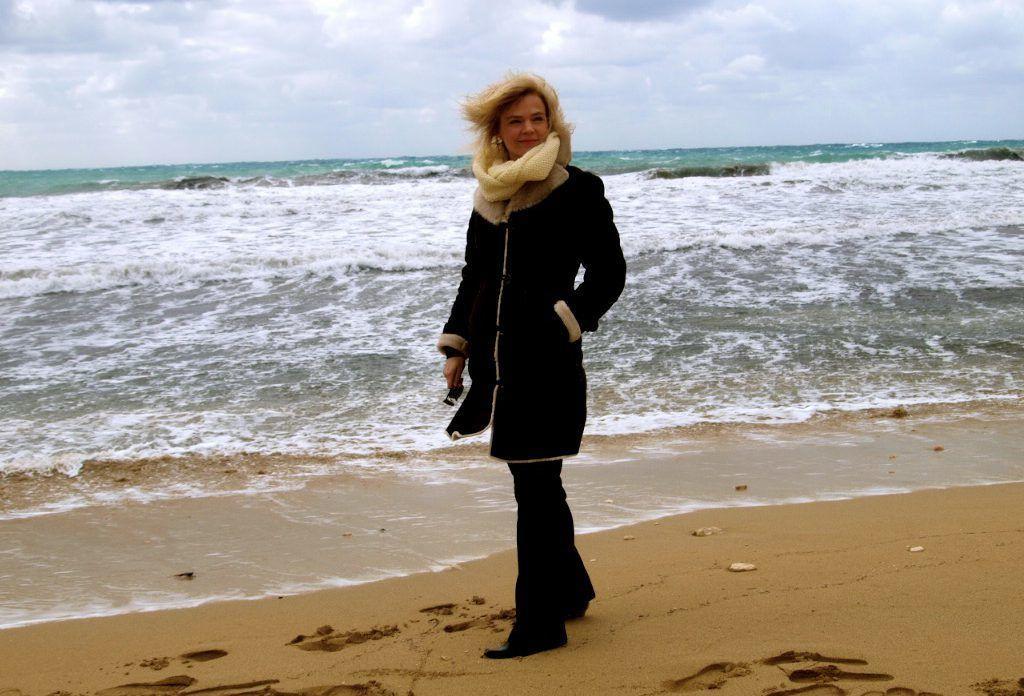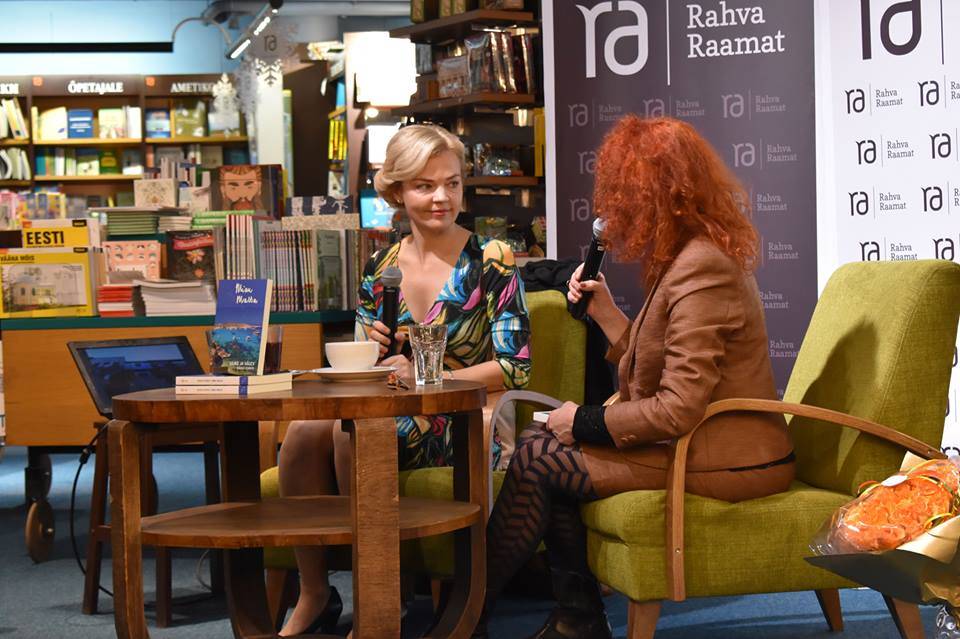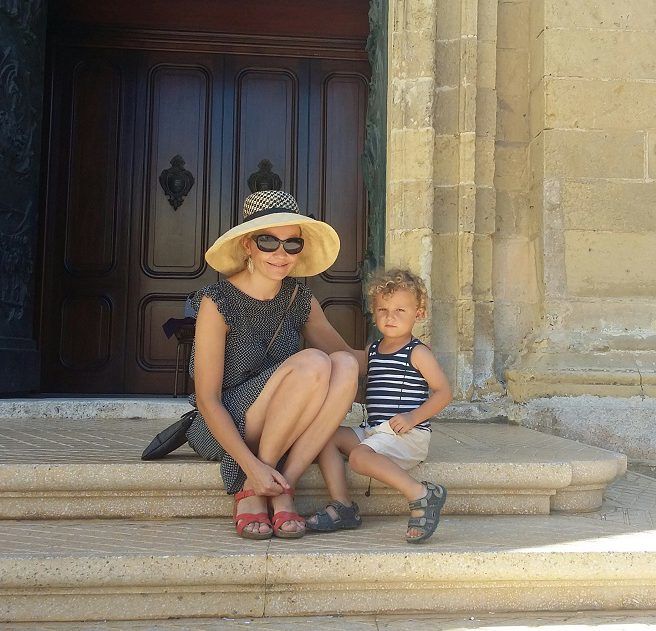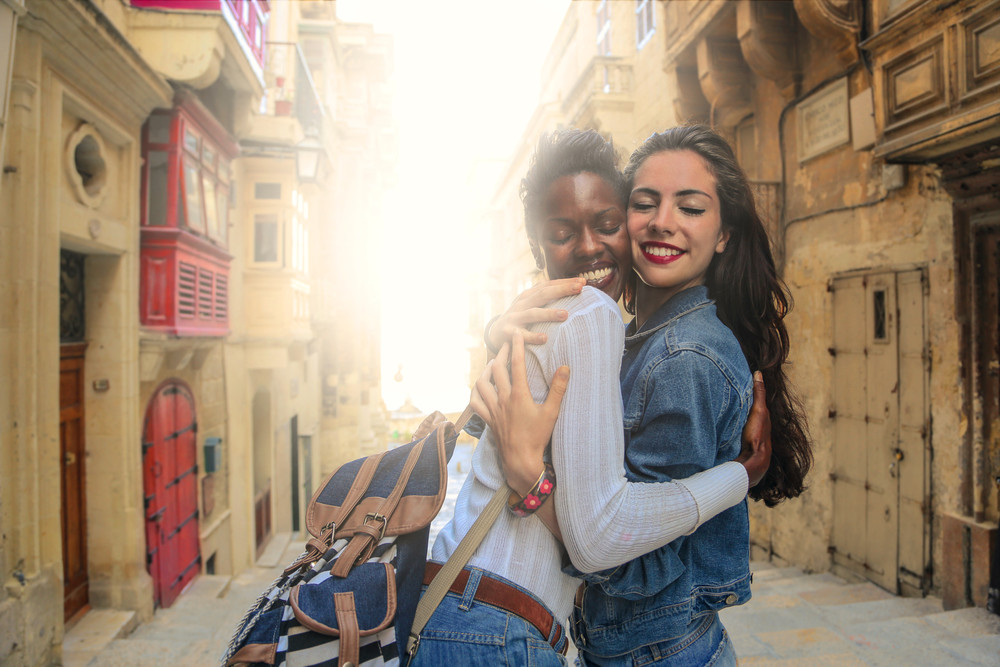Ingrid Eomois has lived, worked and studied in Malta for 18 years and has now published a book, “My Malta” that took her five years to write – here she talks about her life in Malta.
The year 2018 is important for both Estonia and Malta. Estonia is celebrating its 100th anniversary and Valletta is in the honoured position of the European capital of culture. Ingrid Eomois, the director of the British Council in Malta, has recently published her very first book, “Minu Malta” (“My Malta”) – in the Estonian language.
Ingrid lives in a 400-year-old house in Valletta; climbing the steps of the spiralling staircase to her roof patio makes me feel as if having been transported to an old fairy tale. Finally, we get to the cosy and modern patio defined by enormous potted plants; above us is the blue sky with sparkly white doves pirouetting in the vastness. No wonder her book has become a bestseller in Estonia. Ingrid has lived, worked and studied in Malta for 18 years, which puts her in a good position to give enlightening answers to a wide range of questions.
Let us start from the very beginning. What led you to Malta? What was the very beginning of your Malta experience?
I knew very little of Malta when I first landed here in 1999 – to work for an Estonian travel agency for the duration of two months. Ironically, in the beginning I did not like Malta at all: it was too dry, too crowded and too loud for my liking. I learned to love Malta slowly and cautiously. Looking back, it has been a bit like a successful arranged marriage – not love at first sight but respect and love that grows over time. I learned that there was more to Malta than first meets the eye: fascinating culture, Mediterranean easy-going lifestyle and linguistic diversity. I moved to Malta permanently in 2000 to do my master’s degree in theatre studies at the University of Malta.
Petrone Print publishers (an Estonian publishing company – editor) are well known for their My … series of books where the authors describe their lives in a specific city, country or region. What prompted you to write the book titled “My Malta”?
One of the publishers of Petrone Print approached me with the proposal to write the book. I probably would not have done it otherwise since finding time to pursue my hobbies and interests was very difficult. I was also quite keen to promote Malta not only as a sun and sea destination but reveal a deeper, more interesting side of this fascinating country. It took me five years. I think it is safe to say that writing a book is more complex and time consuming than I initially imagined.
What have been the so called important stations or life changing events in your Malta journey?
Work and professional development has always been crucial to me, so completing my master’s degree in theatre studies and another one a few years later in marketing communications was very important to me and helped my career along. I am also a licensed guide and it has been a great privilege to show Malta to thousands of Estonian guests over the years.
I have had a few great job opportunities in Malta but being employed by the British Council has definitely been the most significant and rewarding. On a personal front, I have met some fantastic people along the way who believed in me – both professionally and personally. Without them I would not be where I am today. It is true that as a grown-up, it is more difficult to make true friends and often we have to settle for acquaintances. Once again, I have been very fortunate to meet people who I trust and admire, and who have been there for me, no matter what. One of my best friends is actually Estonian, Margit, who is a successful dental technician in Malta.
I have also received a tremendous support from my parents back home and particularly from my sister and her two grown-up daughters. They come to visit almost every year and we talk to each other every day.
Of course, the birth of my son in 2013 was a life-changing experience and has changed the way I look at life and has partly changed my priorities.
One chapter of your book explains (in amazing detail) how to become a citizen of Malta, how to obtain citizenship. Why is it important to be a citizen of the country you have settled in?
I always thought that it was important to have a say in a country where one lives and without having the citizenship it is not possible. To put it simply, I applied for the Maltese citizenship to be able to vote and participate in the democratic process. In Malta, over 90% of the adult population votes in general election – I wanted to be a part of that. As an EU citizen, I did not need the citizenship for other reasons, such as the right to work or live in Malta.
How connected is your daily work with the Mediterranean countries, the United Kingdom, Estonia and the whole world?
My daily work is closely connected to the UK – at the British Council my job is to promote the UK in Malta. Working in collaboration with local partners is a must – mutuality is a strong principle in the British Council. Therefore I feel closely connected to our Maltese partners in education, arts and science. Some of our projects also involve other Mediterranean countries and countries in the Commonwealth.
My daily work is not connected to Estonia but in collaboration with the Estonian Embassy in Rome I am trying to help promote Estonian culture in Malta. We recently organised an Estonian film festival here and have some exciting plans for this year!
What languages are you using while working, while at home, while with your friends? What languages are being used by other members of your family?
At work, English is the main language. At home, with my partner and I speak English and I speak Estonian with my four year old son. My partner’s family (like most people in Malta) is bilingual (English and Maltese), in a domestic setting they speak mostly Maltese. Unfortunately I am not fluent in Maltese – I can understand a lot and hold a simple conversation but with my (Maltese) friends I speak English. My son is trilingual from birth, and I am already learning Maltese with him!
In Estonia, my family speaks Estonian, my sister and her daughters are also fluent in English. We all make an effort to speak Estonian only with my son to develop his language skills.
You live in Valletta. Why Valletta? Why not Sliema, for example?
I just love Valletta, our capital, and would not live anywhere else, at least for now. I like that Valletta’s population is still largely Maltese people; and Valletta’s people, although sometimes described as on the rough side, are mostly honest and loyal. Sliema and St Julians are highly developed areas where most of the expat community lives. Some love it but it really isn’t for me.
Valletta is changing, and the residents – me included – are not always on board with the changes. Our capital is suffering from gentrification, people with money are moving in, more and more boutique hotels and commercial outlets are opening, questionable building permits are issued to the hotel owners. Property prices are extremely steep in Valletta, most Maltese families today simply cannot afford living here. In my opinion, we really do not need more expensive boutique hotels and bars/restaurants, but affordable properties for young families and public spaces to be enjoyed by the community. Valletta’s heritage needs to be treated with respect.
Huge cathedrals and churches dominate the skyline of Maltese towns and villages. What is the role of religion in Malta?
Malta is predominantly Roman Catholic and although the influence of the church is slightly dwindling, religion still plays an important part in the lives of many Maltese people. Compared with Scandinavia and the Baltics, Malta is still a conservative society and, for example, lacks the reproductive rights that are accessible elsewhere in Europe. Just to give you a little example: divorce was only legalised in Malta in 2011. I am not a religious person myself but I do respect people who have chosen a different path.
On the other hand, in some areas, for example LGBTIQ rights, Malta is very progressive. Same-sex marriage became legal in Malta in 2017. Malta also leads with legislation about the rights of transgender people. I am very proud to live in a country that has done so much for previously marginalised communities.
In connection with Malta, it is inevitable to speak about migration. What is your personal experience with the modern world’s burning problem of migration?
In Malta, migration is quite personal for everyone – the island is small, and the number of refugees is relatively high due to Malta’s geographical location. I would be lying if I said Malta did not struggle with the influx of refugees and the financial and cultural implications it brings. My personal opinion is that we have to help people fleeing war zones because, well, we are human and have the responsibility to help – even when it is inconvenient. Many members of my Estonian family were refugees who escaped from the communist regime and settled in the UK and Sweden. In these countries, they were given the necessary assistance when they needed it most. I believe we have to remind ourselves that every human life has value and act accordingly, with empathy, kindness and conscience.
Is Malta a family-friendly country, even if one’s family happens to be not a very traditional family?
Family is a very important institution in Malta, mainly because of its religious background. Today, of course, the number of “non-traditional” families is on the increase: more couples decide to cohabit rather than get married, the number of civil marriages is increasing, same-sex couples also have a right to adopt children, and as elsewhere, many families only have one parent. All this does not change the fact that children in Malta are loved, and often spoilt! Traditionally, mothers in Malta were homemakers while fathers had the responsibility of providing for the family. These old-fashioned beliefs are changing, albeit slowly.
You have a family and a young son, plus a full-time job. Is it complicated to combine one’s family roles with career demands in a changing society?
It would be untruthful to say that it has been easy, the Maltese society still often operates on the premise that one parent (ie the mother) is a housewife. I had to return to work when my son was three months old because the maternity leave in Malta is quite limited. This was possibly one of the most difficult things I had to do as a parent. Difficult, but nevertheless possible. I am lucky to have an understanding employer, the British Council is known for its family friendly policies. I am also very fortunate to have a partner who is very hands-on father and has a very close and loving relationship with our son.
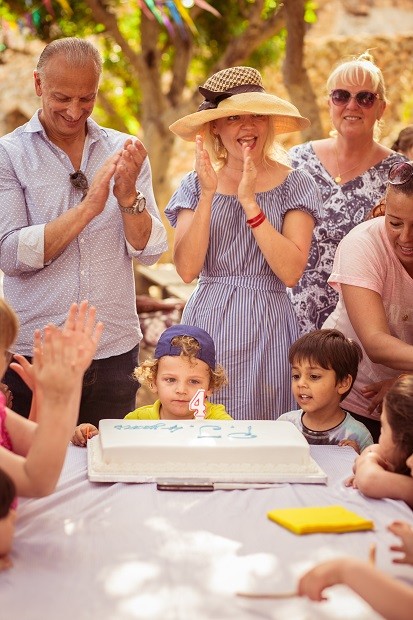 Having a career and family is not easy, it often means working late nights and having less active social life. I don’t see it as a sacrifice, though – having a family was my choice, a choice I treasure each day, even when life gets hectic and difficult. There have been a number of compromises on the way through – my house is often a mess, I don’t entertain as often as I used to, and at times I miss out on school concerts and parents’ days. Then again, I believe that it is important to be a role model for my son, and hopefully he will grow up respecting women and not being blinded by dated gender stereotypes.
Having a career and family is not easy, it often means working late nights and having less active social life. I don’t see it as a sacrifice, though – having a family was my choice, a choice I treasure each day, even when life gets hectic and difficult. There have been a number of compromises on the way through – my house is often a mess, I don’t entertain as often as I used to, and at times I miss out on school concerts and parents’ days. Then again, I believe that it is important to be a role model for my son, and hopefully he will grow up respecting women and not being blinded by dated gender stereotypes.
Valletta is often described as a vibrant city with many ongoing projects, a city where people from different countries and continents have settled. Would it be easy for a foreigner to settle in Malta? What might cause problems or even the old fashioned maladie named nostalgia, regarding, for example, Estonians settling or planning to settle in Malta?
Settling in a new country is always complicated. I can speak from my own experience, of course, and I can say that the first two years in Malta were relatively sad and difficult. Only after making some friends and finding an appropriate job, I felt settled. I think the key is to prepare as much as possible for your new life – talk to people, look into job opportunities and find affordable accommodation. Nostalgia will always be part of an expat life. I never stop missing Estonia, my family and friends there. In time it will just get easier.
How many Estonians have settled in Malta?
I would not know exactly how many Estonians live in Malta, but I think the number might be between 200 and 300. Many Estonians work in the gaming industry. I think that although the Estonian community in Malta is small, it is quite settled and successful. There must be some truth in the old belief that Estonians are hardworking and stubborn! Excellent qualities if one wants to live in a foreign country.
Local Estonians have a Facebook group, and at times we meet face to face, too. I must admit that because of my work and family commitments, my social life has somewhat suffered, and I don’t have the opportunity to meet other Estonians often. We always meet in June, however, for Midsummer Eve, on the beach, and this really is a lovely tradition.
What are the top five places in Malta you would advise people to pay a visit, and why?
There is a lot to choose from, but in my opinion the top attractions are: St. John’s Co-Cathedral in Valletta with its magnificent baroque interior and Caravaggio’s paintings; the pre-historic temples in Malta and Gozo, including the Hypogeum; the Museum of Archeology for its prehistoric artefacts; Mdina, our first capital; and the island of Gozo for a small-island charm.
What are the unmissable highlights of the capital of European culture events in Malta?
There are hundreds of events to choose from, and it is difficult to be objective, but my personal highlights would be: Latitude 36, an arts project about the Maltese diaspora experience; The Island That The Sea Surrounds (a visual arts project involving 25 artists, including the well-known British artist, Susan Philipsz); the Playwriting Project, led by Malta’s only professional theatre, Teatru Malta (the renowned British playwright, Brad Birch, is commissioned to write a play about football, among other things, and it will premiere in June 2018 at Malta’s national football stadium); and certainly, Malta Calls – a fantastic outdoor dance performance by Zfin Malta, our national dance company.
What are the projects that are keeping you busy now?
It is going to be a busy year because of the cultural capital projects the British Council is involved in. In addition to my daily work and family commitments, I am also a business coach and I plan to develop it more this year. In our 400-year old house in Valletta, we are also running an Airbnb, renting out the first floor to travellers all around the world, and that keeps us relatively busy. I do guiding in English and Estonian whenever possible. Also, I am thinking of my PhD but that possibly will have to wait a few years. In my New Year’s resolutions, I also promised to spend more quality time with my son and friends and practice mindfulness more intently.
 I try to live a healthy life (often fail miserably, though) and my annual appointment is the Malta Half Marathon in February. It gives me the motivation to keep training in order not to be the last person reaching the finish line!
I try to live a healthy life (often fail miserably, though) and my annual appointment is the Malta Half Marathon in February. It gives me the motivation to keep training in order not to be the last person reaching the finish line!
I am very involved with women’s rights in Malta. I am a member of Business Professional Women (BPW) and involved with Women Directors in Malta. I would really like to dedicate more time to this and address important issues such as equal pay and reproductive rights.
Do weekends always mean a good rest for you?
I have learned that with a four-year-old there really isn’t such thing as a relaxing weekend! I often have to work at weekends but apart from that, I try to spend as much time as possible with my son, ideally outdoors.
Malta is a preferred holiday destination for many. What would be your favourite holiday destination?
The reality of an expat is that I spend my holidays in Estonia. Given a choice between an exciting new destination and my home-country, my heart always chooses Estonia.
I
All images courtesy of Ingrid Eomois (unless otherwise stated). Read also: Why do Estonians choose Malta?

